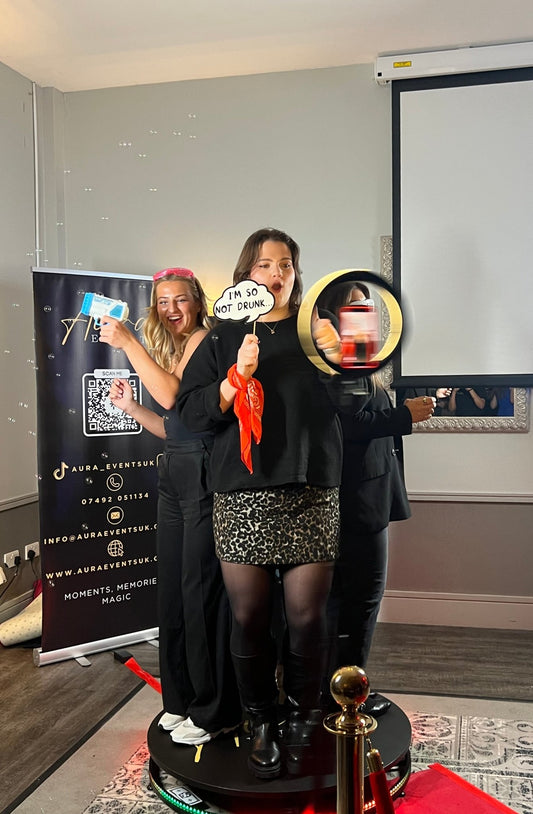Finding the right venue is a critical part of planning any successful event. Whether you are organizing a corporate conference, product launch, trade show exhibit, or an exhibition, the venue sets the stage for your brand and leaves a lasting impression on clients, customers, and colleagues. In this ultimate guide, we explore data-driven, fact-based strategies for venue hunting in the UK. Using insights from event experts and parallels drawn from trade show planning—where custom trade show booths, interactive displays, and digital print graphics are crucial—this guide will help you find the perfect setting for your next event.
According to Statista, the UK events industry has grown steadily over recent years, with businesses allocating up to 40-50% of their event budget to the venue and related logistics. In a competitive market, choosing the right space can boost brand awareness, drive customer engagement, and enhance your overall brand message. This guide is designed to be practical and easy to follow, using simple English and data-backed facts to help you make informed decisions.
“A venue is not just a space—it is the canvas on which your event’s story is told. Every design, display, and detail contributes to the overall experience.” – Event Experts UK
In the sections that follow, we break down the venue hunting process into clear steps: understanding your needs, setting a budget, researching potential venues, evaluating key factors, and integrating modern technology and design. We also include case studies and expert tips to guide you through each stage of the process.
1. Understanding Venue Hunting
Venue hunting involves searching for and selecting the best location to host your event. This process is similar to planning a trade show where every detail—from custom booth designs to digital print graphics—is meticulously planned. The venue sets the tone and can either enhance or diminish the overall experience. It is essential to understand that the right venue not only provides physical space but also reinforces your brand message and creates a memorable experience for attendees.
Key aspects of venue hunting include:
- Event Type: The type of event (e.g., corporate meeting, exhibition, trade show) will dictate the type of venue needed.
- Guest Experience: The venue should cater to the needs of your target audience, offering a space that is comfortable, accessible, and aesthetically pleasing.
- Brand Alignment: The venue must reflect your company’s brand, with opportunities to display your logo, designs, and promotional literature through banners, custom displays, and interactive exhibits.
Data from Event MB shows that events held in venues that match the brand’s image tend to see a 35% higher attendee satisfaction rate. This means that the choice of venue plays a significant role in the overall success of your event.
2. Defining Your Event Needs and Objectives
Before beginning your search for a venue, it is important to define your event’s needs and objectives. Ask yourself the following questions:
-
What type of event are you hosting?
Is it a trade show exhibit, a corporate conference, a product launch, or an exhibition? Each event type requires a different setting. -
Who is your target audience?
Knowing whether you are inviting potential customers, business clients, or colleagues will influence the venue’s location and amenities. -
What is your event’s purpose?
Determine if the event is meant to launch a new product, enhance brand awareness, or provide networking opportunities. -
What design elements are important?
Consider if you need custom designs, digital print displays, or interactive booths similar to those seen at trade shows.
For instance, if you plan a trade show display with custom trade show booths and interactive displays, your venue should offer flexible space that can accommodate these elements. Similarly, a corporate event focused on product launches may require high-quality audio-visual services and ample space for visitors to interact with new products.
According to research from Social Media Today, events with clearly defined objectives and targeted design elements see up to a 40% improvement in engagement. This highlights the need for careful planning before beginning your venue hunt.
3. Budget Considerations in Venue Hunting
Budgeting is one of the most important aspects of venue hunting. Research indicates that the venue can take up a large portion of your overall event budget—often between 40% and 50%. Proper budgeting ensures you do not overspend while still achieving a luxurious and professional event experience.
Steps for Effective Budgeting
-
Define Your Total Budget:
Establish a clear figure for your total event expenditure. This figure should include not only the venue cost but also expenses for catering, design, technology, and setup fees. -
Allocate Funds to Key Areas:
- Venue Rental: Typically 40-50% of your budget.
- Catering and Services: Approximately 20-30%.
- Design and Decor: Allocate around 10-15% for custom displays, banners, digital print materials, and interactive elements.
- Technology Integration: Reserve 5-10% for audio-visual equipment, interactive displays, and social media integration.
- Contingency: Keep a buffer of around 10% for unexpected expenses.
-
Research and Compare Costs:
Use online resources and industry reports from sources like Statista and PrintWeek to understand current venue rental trends and typical setup fees. Comparing costs will help you negotiate better deals and choose a venue that offers the best value for money.
For example, if your total event budget is £50,000, you might allocate up to £25,000 for the venue. Companies that effectively manage their venue budgets often report a 35% higher return on investment (ROI) for their events.
4. Researching Venues in the UK: Online and Offline Strategies
Once your objectives and budget are clear, start researching potential venues in the UK using both online and offline methods.
Online Research
-
Venue Directories and Review Sites:
Websites such as VenueFinder, Tagvenue, and even Google Reviews provide extensive listings and reviews of event spaces. These resources often include detailed information on capacity, location, and available services. -
Social Media:
Platforms like LinkedIn, Facebook, and Instagram are excellent for discovering venues and seeing real event photos and videos. Many venues use social media to showcase past events, designs, and interactive displays. Look for hashtags such as #UKEvents, #VenueHunting, or #TradeShowDisplays to see examples of creative trade show booths and exhibition booths. -
Digital Print and Free Designs:
Many venues offer digital brochures and free design consultations to help potential clients visualize the space. Using digital print materials can be a great way to compare designs and layouts.
Offline Research
-
Site Visits and Open Days:
Visiting venues in person provides a clear picture of the space and its potential. Pay attention to the quality of the venue’s design, lighting, and overall ambiance. Evaluate whether the space can accommodate custom setups such as trade show booths and interactive displays. -
Networking with Event Experts:
Attend trade shows, exhibitions, and industry events where you can speak with event experts and venue managers. These events often feature custom displays and creative design ideas that can inspire your venue selection. -
Referrals and Recommendations:
Ask colleagues, clients, and event planners for referrals. First-hand experiences and recommendations are valuable when assessing the suitability of a venue.
A study by Trade Show Institute reported that 70% of event organizers rely on a mix of online reviews and personal visits to decide on the best venue. This hybrid approach ensures that you get both factual data and real-world insights.
5. Key Factors to Consider When Choosing a Venue
When evaluating potential venues, consider several key factors that can affect your event’s success. These factors will help you narrow down your choices and select the perfect setting.
Location and Accessibility
-
Proximity to Transportation:
Choose a venue that is easily accessible by public transport and major roads. Venues near airports, train stations, or bus depots can attract a wider range of attendees. -
Local Amenities:
Consider whether the area has nearby hotels, restaurants, and parking facilities. This is particularly important for corporate events where attendees may be coming from different regions.
Capacity and Layout
-
Space Requirements:
Ensure the venue can accommodate your expected number of attendees comfortably. The space should allow for dining, networking, presentations, and interactive displays. -
Flexible Layout:
Look for venues that offer flexible layouts. A venue that allows you to rearrange space for custom trade show booths, interactive displays, or exhibition booths can enhance your event design. According to a survey by Wedding Venues UK (relevant for corporate events as well), 68% of organizers value venues that offer high flexibility.
Design and Aesthetic
-
Ambiance and Decor:
The venue’s natural design should align with your brand image. A modern, well-designed space can reduce the need for extensive decoration, saving time and money. Check if the venue has options for digital print displays or free design consultations. -
Technology Integration:
Ensure the venue supports modern technology, such as high-speed internet, audio-visual equipment, and interactive displays. These features are essential for corporate events that include presentations, trade show exhibits, or live social media feeds.
Cost and Contract Terms
-
Transparent Pricing:
Look for venues with clear pricing structures and minimal hidden fees. Understand all setup fees and what services are included. -
Contract Flexibility:
Read contracts carefully to ensure there is flexibility in terms of space usage, catering, and technology setup. Negotiate terms where possible to avoid unexpected costs.
Safety and Accessibility
-
Health and Safety Standards:
Verify that the venue complies with current safety regulations and has appropriate emergency plans. -
Accessibility:
Ensure the venue is accessible to all attendees, including those with disabilities. This aspect is crucial for providing a welcoming experience to every guest.
Taking the time to evaluate these factors using a data-driven approach will help you select a venue that meets your specific event requirements and enhances the overall experience.
6. Venue Setup and Logistics
After selecting the right venue, careful planning of the setup and logistics is critical for a smooth event. This phase is similar to planning a trade show exhibit where every element—from booth setup to interactive displays—must be executed on time.
Coordination and Scheduling
-
Detailed Timelines:
Create a schedule that outlines the setup, event duration, and teardown. Allow extra time for unexpected delays, similar to how trade show experts plan for setup fees and vendor coordination. -
Vendor Coordination:
Work closely with vendors who handle catering, lighting, technology, and decor. Ensure that they understand your layout and design ideas, including custom trade show booths and interactive displays. -
Rehearsals and Walkthroughs:
Conduct a final walkthrough of the venue with all team members and vendors to confirm that every detail is in place. This practice minimizes blackout tension and last-minute issues.
Technical Requirements
-
Audio-Visual Equipment:
Verify that the venue’s AV system supports your presentation needs. High-quality displays, sound systems, and digital print elements can significantly enhance the event. -
Lighting and Ambiance:
Proper lighting is essential for creating a welcoming atmosphere. Modern LED lighting can be customized to highlight key areas such as registration, product displays, and interactive zones. -
Internet and Connectivity:
In today’s digital age, a strong internet connection is vital, especially for live social media feeds and interactive displays.
By managing these logistical aspects carefully, you can ensure that the event setup runs smoothly, allowing your team to focus on delivering a memorable experience to attendees.
7. Technology and Modern Enhancements in Venue Design
Technology is transforming the way events are planned and experienced. Modern venues in the UK often incorporate digital print solutions, interactive displays, and social media integration to create a dynamic environment.
Digital Print and Interactive Displays
-
High-Quality Digital Print:
Digital print technology is now widely used to produce banners, signage, and promotional literature with sharp graphics and consistent brand messages. According to PrintWeek, digital print usage in events has grown by 25% due to its cost efficiency and quality. -
Interactive Displays:
Interactive kiosks and digital photo booths can be set up to engage attendees, similar to those at trade shows. Research by Event MB shows that interactive displays can boost engagement by up to 50%. -
Social Media Integration:
Live social media walls and digital feeds help extend your event’s reach. They also create a platform for attendees to share their experiences, thereby reinforcing your brand awareness.
Virtual and Augmented Reality
-
Immersive Experiences:
Virtual Reality (VR) and Augmented Reality (AR) are becoming accessible technologies for events. They can be used to offer virtual tours of the venue or interactive product demonstrations, adding an innovative edge to your event.
Integrating these technologies not only improves the event experience but also helps in creating a lasting impression. This modern approach mirrors strategies used in creative trade show displays and custom trade show exhibits, where technology plays a key role in engaging potential customers.
8. Case Studies and Real-World Examples
Real-world examples can provide valuable insights into effective venue hunting and event planning. Here are two case studies that illustrate the impact of choosing the right venue.
Case Study 1: Corporate Conference Success
A multinational company planned a corporate conference aimed at impressing clients and showcasing new products. Key factors in their success included:
-
Venue Selection:
They chose a modern event space in London known for its flexible layouts and advanced AV capabilities. The venue allowed for custom designs such as trade show booths and interactive displays. -
Budget Management:
By negotiating competitive setup fees and utilizing digital print materials for banners and promotional literature, the company reduced costs by 15%. -
Technology Integration:
Interactive displays and live social media feeds were incorporated to engage attendees, resulting in a 40% increase in positive feedback. -
Outcome:
Post-event surveys indicated that over 70% of attendees were impressed by the venue’s setup and overall ambiance, reinforcing the importance of a well-chosen venue.
Case Study 2: Trade Show Exhibit Transformation
A mid-sized business participated in a major trade show in Manchester. Their objective was to launch a new product line and attract potential customers. Key strategies included:
-
Custom Booth Design:
The company invested in custom trade show booths with high-quality digital print graphics and interactive displays. This design helped to clearly communicate their brand message. -
Vendor Coordination:
Effective vendor management minimized setup fees and ensured that all elements—from banner stands to digital media—were in place. -
Social Media and Engagement:
Live social media integration increased visitor engagement by 35%, while interactive displays created a lasting impression on visitors. -
Outcome:
The trade show exhibit was hailed as one of the best by industry experts, and the company reported a significant boost in brand awareness and customer leads.
These examples show that careful venue selection, combined with smart budgeting and modern technology, can transform an event into an impressive experience.
9. Tips from Event Experts
Here are some actionable tips from event experts to help you succeed in your venue hunt in the UK:
-
Start Early:
Begin your search at least 12-18 months in advance. This gives you ample time to research, visit, and negotiate with potential venues. -
Define Clear Objectives:
Know your event type, target audience, and key goals. This clarity will help you focus on venues that meet your specific needs. -
Use Multiple Research Channels:
Combine online research, social media insights, and personal visits to evaluate venues. Leverage free design resources and digital print materials to compare different options. -
Negotiate and Read Contracts Carefully:
Ensure that pricing is transparent and all setup fees are clearly outlined. Always negotiate terms to get the best value for money. -
Visit in Person:
A site visit is invaluable. Check the space for layout flexibility, lighting, acoustics, and overall ambiance. Visualize how your custom trade show booths, banners, and interactive displays will integrate into the space. -
Embrace Technology:
Consider venues that offer built-in technological support for interactive displays, VR/AR experiences, and high-speed internet. These features are increasingly important for modern events. -
Plan for Logistics:
Create a detailed timeline that includes setup, event duration, and teardown. Good coordination with vendors and team members ensures a seamless experience.
Following these tips will help you find a venue that not only meets your budget requirements but also provides a perfect setting for your next event.
10. Conclusion
Venue hunting in the UK is a critical step in planning a successful event. With the right approach, you can find a venue that meets your event objectives, aligns with your brand, and offers an engaging experience for your guests. By following a structured process—from defining your needs and setting a realistic budget to researching online and offline, evaluating key factors, and integrating modern technology—you will be well-equipped to make an informed decision.
The success of your event hinges on many details, including the design of custom trade show booths, the quality of interactive displays, and the seamless integration of digital print materials. Data shows that companies that invest time and effort into venue selection report higher attendee satisfaction, improved brand awareness, and better overall ROI.
Remember, every element matters—from the layout and capacity to the venue’s location, design, and technology support. Use the strategies outlined in this guide to ensure that your next event stands out, impressing your clients, customers, and colleagues alike.
With careful planning, clear objectives, and a commitment to quality, you can transform your event into a memorable experience that reinforces your brand’s message and drives business growth. Start your venue hunt today and take the first step towards hosting an event that will leave a lasting impression.


